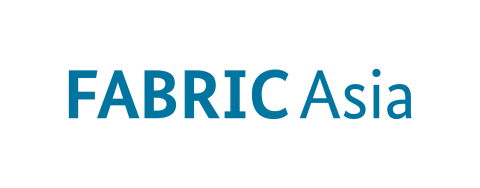
Asian Dialogues on Sustainability in the Textile and Garment Industry
The textile industry plays a major role in the economy of many Asian countries. While the underlying conditions vary considerably between countries, the challenges they face are similar – to ensure decent conditions for workers and reduce environmental impacts. To overcome these challenges while continuing to expand, the industry needs to be more socially, environmentally and economically sustainable. This can be done, but it requires collaboration: Strong networks and regular knowledge-sharing can help the industry to implement sustainable business models across the board.
To strengthen regional exchange, GIZ FABRIC initiated a conference series called “Asian Dialogues on Sustainability in the Textile and Garment Industry”, providing a platform to discuss opportunities and challenges on the way towards sustainability, to share regional experiences and to learn from innovative initiatives tackling sustainability issues in the different producing countries.
The conference series brings together industry representatives from brands, suppliers, workers, civil society and government bodies from across Asia. The conferences are organized by FABRIC project in cooperation with members of the STAR Network, a network of business associations in the region, and other local partners. Since 2016, more than 1,400 participants attended the 13 conferences on different sustainability topics in six countries in Asia and exchanged on their experiences and lessons learned in driving more sustainable production.
When COVID-19 hit the world, supply chains globally and across industries were disrupted. While reduced income from missing sales poses threats on brands and retailers, many factories are suffering heavily from order cancellations. Consequently, the industry witnesses an increasing number of factory closures, potentially leaving hundreds of thousands of workers unemployed. The implications on developing countries are enormous, potentially leading to strikes and social unrest.
Immediately at the beginning of the COVID-19 crisis, the Asian Dialogues online seminar series "Getting through the crisis together" was created.
The conference series “Asian Dialogues on Sustainability in the Textile and Garment Industry” had to be paused due to the outbreak of COVID-19 in early 2020 that curtailed face-to-face meetings. Thus, FABRIC initiated an online seminar series “Getting through the crisis together” that brings together industry stakeholders including Asian producers/suppliers, producer associations, brand representatives, civil society/worker representation and international organizations.The online series sheds light on different aspects of the COVID-19 pandemics’ impact on the textile and garment industry, especially regarding the implications on production in Asia. While many sessions mainly focus on the current production situation, we want to broaden the view with a more positive approach, showing good practice examples of dealing with crisis at the factory level and lessons we can take on how to make the industry more resilient. The goal is to strengthen the exchange of regional experiences, good practices and innovative initiatives to foster the development of a healthier industry as we emerge from the crisis.
“Moving the needle: Creating the future together”, an online seminar series that sheds light on new trends and structural changes in the industry
To also cover other related topics, FABRIC also initiated the online seminar series “Moving the needle: Creating the future together” which is a continuation of the physical conference “Asian Dialogues on Sustainability in the Textile and Garment Industry”. This second online series is focused less on "Getting through the crisis together" - the theme during 2020 – and sheds light on new trends and structural changes in the industry as it emerges from the pandemic. Key issues include for example mandatory due diligence requirements from Western countries, new ways of thinking about purchasing practices, the move to expand health and safety initiatives, recycling and the circular economy, innovation in fabrics and textiles, tools and approaches to tackle gender-based violence and many more.

